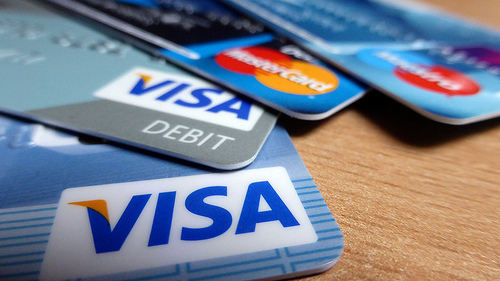 There are so many aspects involved in starting up an online business. From design, branding and on-site blogs to quality written content, smooth page transitions and an organized product inventory. But all of these things are relatively superficial and trivial in comparison to (what should be) top of your list of priorities: security. In E-commerce, the old saying still stands. Safety first! So before you launch your brand new web page, make sure that it is a safe place for both you and your customers alike. This will prevent mishaps from happening down the line which could prove costly and lengthy to put right. Here are a few areas to focus on.
There are so many aspects involved in starting up an online business. From design, branding and on-site blogs to quality written content, smooth page transitions and an organized product inventory. But all of these things are relatively superficial and trivial in comparison to (what should be) top of your list of priorities: security. In E-commerce, the old saying still stands. Safety first! So before you launch your brand new web page, make sure that it is a safe place for both you and your customers alike. This will prevent mishaps from happening down the line which could prove costly and lengthy to put right. Here are a few areas to focus on.
Backing Up Your Content
So, you’ve got your site up and working. Everything is in order. You have a great theme that gives your page the layout you’d imagined when you started out. Your products are professionally photographed and have been listed for sale, with featured collections featured on the homepage and a search bar in place that will allow customers to find exactly what they’re looking for. You have a few blog articles posted and ready to read. Your terms and conditions have their own page. As do shipping details and refund and exchange policies. Perfect! But don’t entirely rely on your web host to keep your content safe. Chances are you will never really need to reboot your site from scratch. But every so often, mistakes or errors occur and page content can be deleted or completely wiped out. So don’t put all of your eggs in one basket and ensure that you have extra copies of all of your content stored with an external, independent source. There are a couple of ways to do this.
There’s the old school method, where you back everything up onto an external hard drive. This will give you the knowledge that everything you need to reset your website quickly is stored safely in a device that isn’t connected to (or dependent on) anything else. From CSS codes to stock images and product descriptions or perhaps even software licenses and font kits. Everything will be stored safely. The only problem with this method is that the hard drive could always become lost or damaged itself. An alternative method that more and more people are turning to is the use of Cloud Services. Cloud services involve transferring your data to an outsourced computing infrastructure. It will be stored securely and can be accessed or re-downloaded at any time. This is the preferable option. Though it’s always handy to have the old hard drive method on hand just in case. Better safe than sorry after all, right? A 2015 study showed that businesses who make use of Cloud storage tend to be more successful, bringing in more revenue and potentially making twice as much profit as non-Cloud users. So don’t hesitate, get everything backed up as soon as possible!

Secure Payment Methods
With the rapid increase in cyber crime over the past decade or so, it’s not exactly surprising that more and more customers expect secure and verified payment methods when purchasing goods or services online. Many individuals will have experienced, or know someone who has experienced, identity theft online. Fraudsters have numerous ways to gain access to strangers’ personal information, bank details and card details, which they can then use to order products or services for themselves, apply for credit cards or loans and other nefarious practices. So you should ensure that your site offers them comfort through secure payment methods and a secure checkout process. Consider using well-known names and services, such as Paypal. Paypal business accounts allow your buyers to check out with peace of mind, security and a guarantee. The added bonus? Most people who buy online already have a Paypal account set up, which stores their payment details for them. If it’s an accepted payment method in your store, they’ll be able to purchase your products, even if they don’t have their card or bank details on them at the time. This will increase your overall sales and profit. It’s a win-win situation.
Storing Customer Information
You are obliged to give your customers privacy and keep their personal information confidential. You should never sell customer information to other parties and you should have their consent before contacting them. If you have a mailing list, ensure that those who sign up are aware that their email will be used and exactly what for? Whether it’s newsletters, messages with discounts and offers, or reminders of special events or sales. As long as they know what they are signing up for, you won’t find yourself facing any problems or glaring issues.